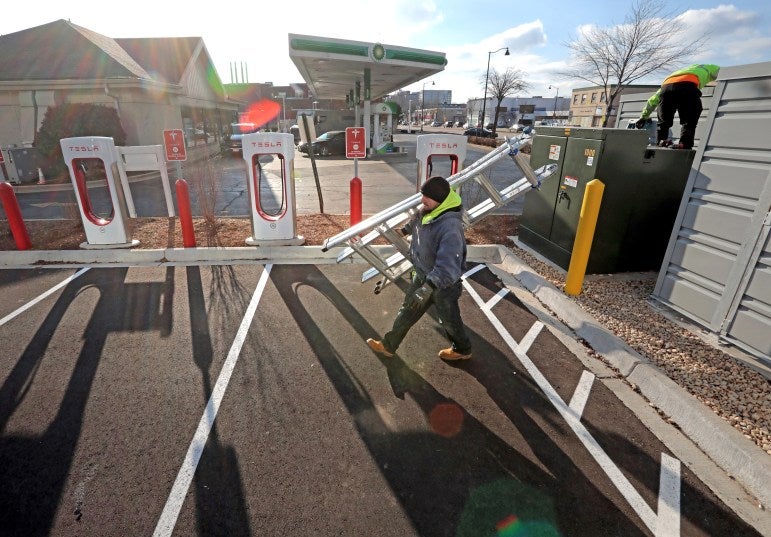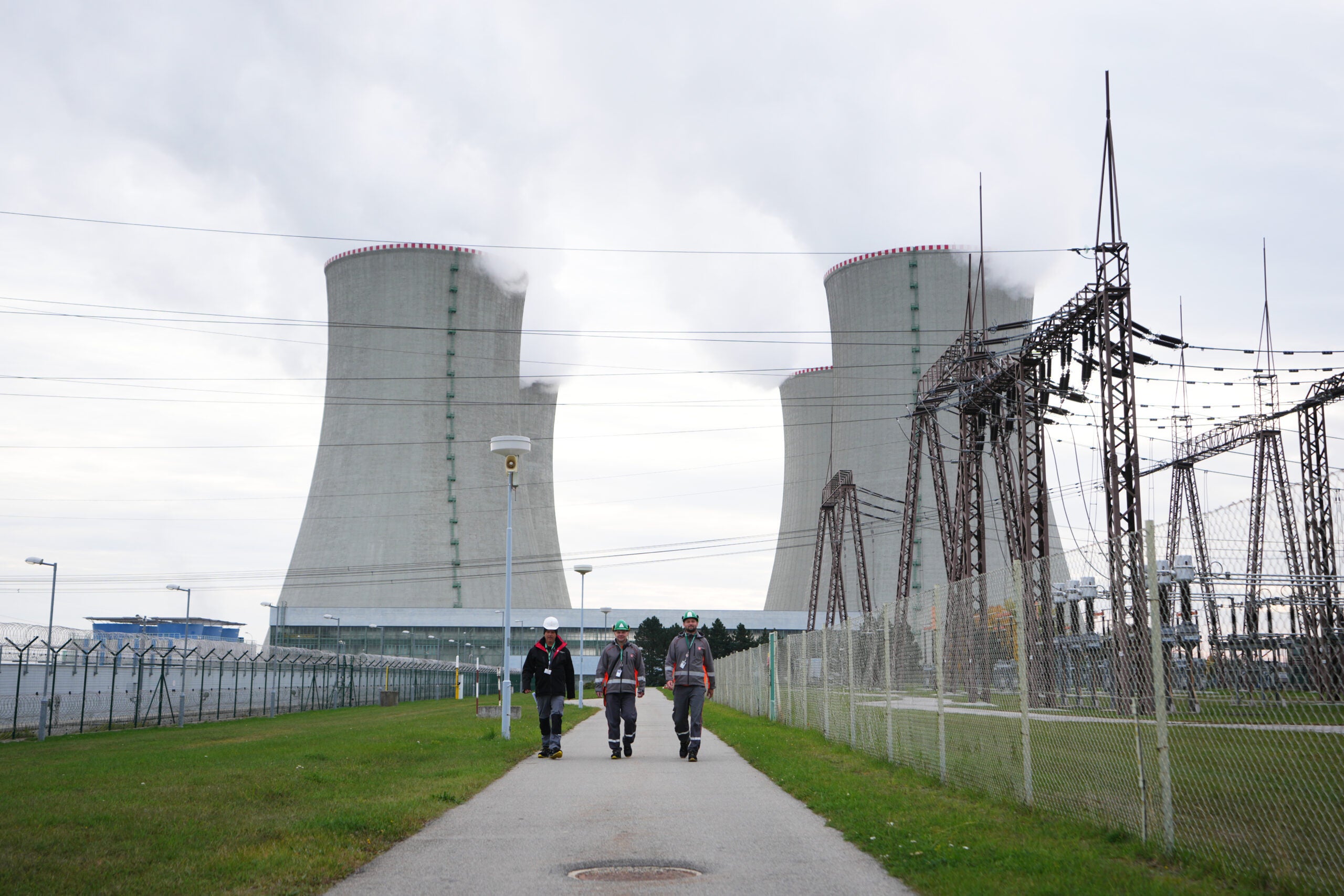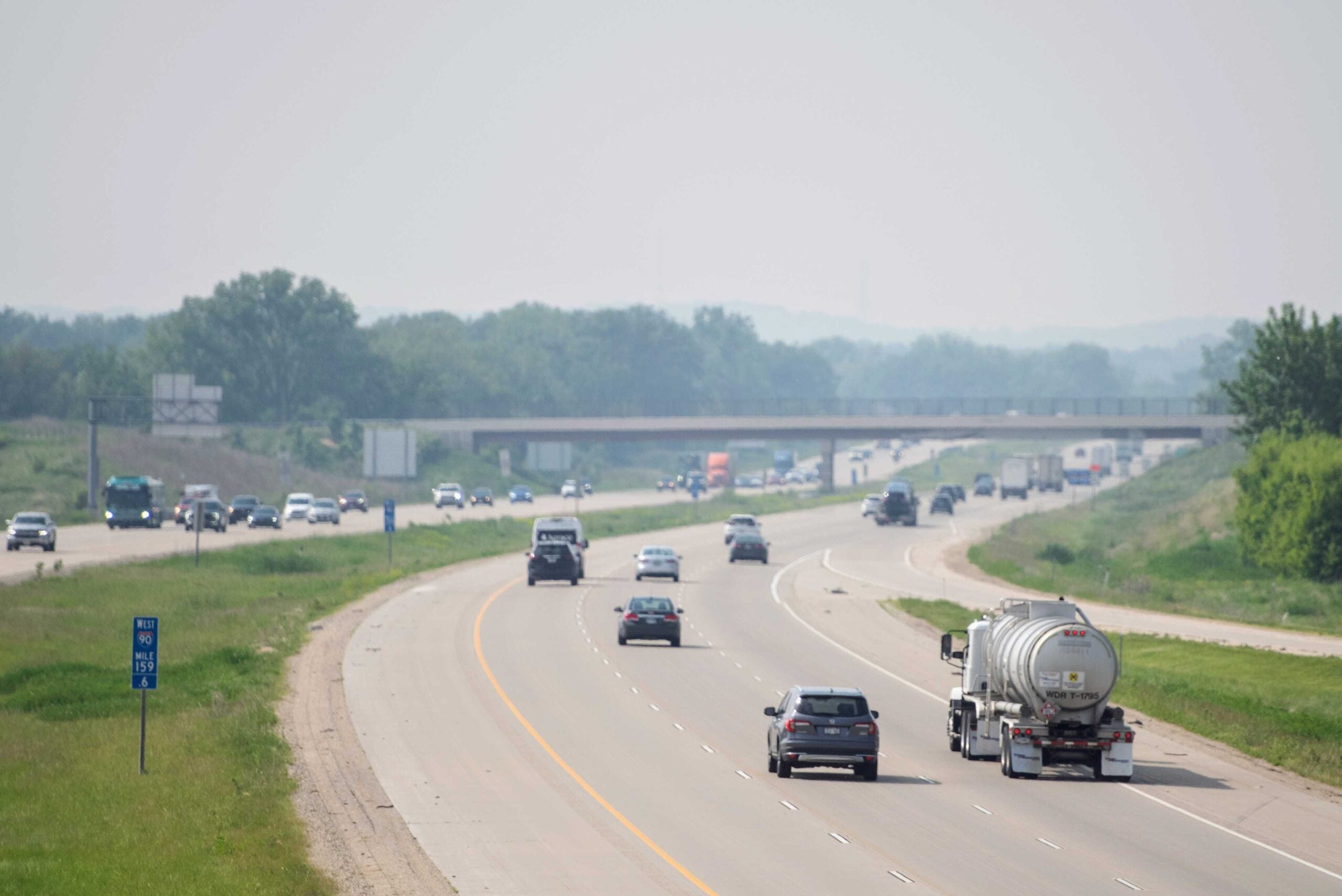Wisconsin communities would not be allowed ban people from buying gas-powered cars or appliances under a pair of Republican bills passed along party lines in the Wisconsin Assembly on Tuesday.
The legislation would prevent Wisconsin’s state and local governments from enacting zero-emission mandates that would phase out vehicles, lawnmowers, ovens and other consumer goods that use fossil fuels in favor of those powered by electricity.
While seven states have announced plans to ban sales of gas-powered vehicles after 2035, Wisconsin is not one of them. Republican lawmakers argued the bills were a proactive measure.
News with a little more humanity
WPR’s “Wisconsin Today” newsletter keeps you connected to the state you love without feeling overwhelmed. No paywall. No agenda. No corporate filter.
“These bills just protect the consumers, our manufacturers and distributors across the state from deciding what kind of vehicle or lawnmower or kitchen appliance you want to have in your home,” the legislation’s co-author, Rep. Ellen Schutt, R-Clinton, told reporters.
During floor debate, Republican lawmakers argued restricting items based on their power source limits consumer choice and stresses an electric grid that is not prepared for a wholesale overhaul of people’s garages and kitchens.
“If everyone in my community switched over to have electrical vehicles, we actually couldn’t power them and run our homes,” Schutt said, citing a conversation with her local electric cooperative.
Rep. Patrick Snyder, R-Schofield, argued limiting consumer options would unfairly sway the free marketplace, and pick “winners and losers.”
“It should be the people’s choice,” Snyder said.
Snyder also argued that electric vehicles are prohibitively expensive for many consumers.
“Right now, there’s no electric car that I know of that’s affordable for a middle class person,” he said.
Some GOP lawmakers also argued on behalf of specific groups, like motorcyclists and farmers. Rep. Nik Rettinger, R-Mukwonago, said the experience of driving a motorcycle could not be replicated without gas, and Schutt said that requiring tractors to be fueled by heavy electric batteries could present a problem for farmland. Rep. Chanz Green, R-Grandview, said gas-powered vehicles are required for moving the “wet, heavy snow” that blankets Wisconsin in winter.
Rep. Christine Sinicki, D-Milwaukee, spoke out against the bills, calling them unnecessary. She pointed out that the state has made no attempts to mandate a transition to electric vehicles or appliances.
“These bills are really a solution that is looking for problem that does not exist,” Sinicki said. “We’re not anywhere near having an EV (electric vehicle) revolution.”
In response, Republicans said they have a responsibility to legislate proactively.
Wisconsin has not formally created any programs to limit the sales of gas-powered vehicles. A clean energy plan released by Gov. Tony Evers last year called for expanding the state’s electric vehicle infrastructure, and suggests incentives for electric appliances.
And the newly formed Clean Economy Coalition of Wisconsin, which Evers supports, has a stated goal of promoting “statewide decarbonization by 2050,” including “a goal of over 50 percent of new car sales being electric by 2030.”
Earlier this month, environmental advocates in Wisconsin welcomed a push from the federal Environmental Protection Agency that would require two-thirds of all new car and pickup truck sales to be electric by 2032.
The League of Conservation Voters opposed the bills, saying they would “work against” a necessary transition to “cleaner” appliances and transportation sources. The American Lung Association also opposed the plans, writing in prepared testimony last week that the use of natural gas in the home can worsen symptoms for kids suffering from asthma or allergies.
“Preempting local public entities from limiting the sale of appliances based on how they are powered in the best interest of their communities ignores a community’s right to self-govern and protect health,” wrote the Association.
The ban passed Tuesday was supported by industry groups and conservative groups, including the American Petroleum Institute, Wisconsin Manufacturers and Business, and Kwik Trip, Inc.
Both bills head next to the state Senate.
At an event in Milwaukee on Tuesday, Evers said a ban on gas cars wouldn’t be necessary.
“We just need to slowly move into making sure that our vehicles are electric,” he said. “We will do it on a better pace than just saying tomorrow, ‘You can’t have that.’”
Carjacking bill headed to Evers’ desk
In other action Tuesday, the Assembly also approved a bipartisan bill that defines the theft of a car as a “carjacking,” and increases the maximum prison sentence from 40 to 60 years for carjackings that involve a weapon.The bill was approved 80-18, with support from 16 Democrats. It already passed the Senate 23-8.
It was backed by law enforcement groups, police unions and insurance industry groups.That bill is part of a series of legislation authored by Republican lawmakers aimed at curbing vehicular violence.
Gov. Evers recently signed a bill increasing punishment for reckless drivers. Asked for comment about whether he would sign the carjacking bill, an Evers spokesperson referred to that signing, and to other traffic-calming and street safety measures Evers has proposed.
The Assembly also unanimously approved a Republican-authored bill to speed up the processing of sexual assault kits. That measure now heads to the Senate.
Wisconsin Public Radio, © Copyright 2025, Board of Regents of the University of Wisconsin System and Wisconsin Educational Communications Board.







